Council cuts have 'hit cities and north hardest'
- Published
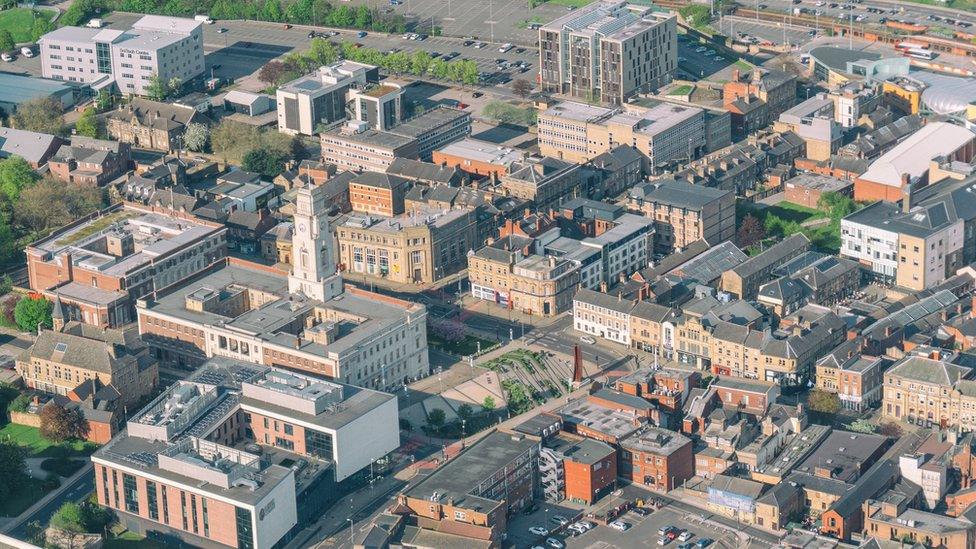
Barnsley has seen a 40% drop in council spending over eight years
Cities and urban areas across Britain have been "hit hardest" by cuts to local government funding, a report says.
Centre for Cities said built-up areas lost an average of £386 per head over the past eight years.
It said councils in the north of England were "less able to raise money locally" than those in the south.
Communities Secretary James Brokenshire said local authorities would get £1bn "extra in funding" over the next year.
While authorities that got into severe financial difficulty, such as Northamptonshire County Council, had "grabbed the attention", urban areas in the north of England had seen the biggest cuts to council spending over the past eight years, Centre for Cities said.
Jobs axed
The think-tank said Barnsley was the "hardest hit" area in Britain, with 40% cuts to its day-to-day spending in 2017-18 compared to 2009-10.
Sir Stephen Houghton, leader of Barnsley Council, said the authority had lost £107m due to funding cuts and had axed four out of 10 jobs.
He added the cuts had forced the council to make "unpopular decisions" such as increasing council tax.
Mayor of Doncaster, Ros Jones, said: "The significant funding pressures in relation to adults and children's social care needs to be addressed nationally, and not left to local authorities to address through council tax."
Urban areas in the north of England saw their spending cut by an average of 20%, compared to 9% for those in the south-west, east and south-east of England.
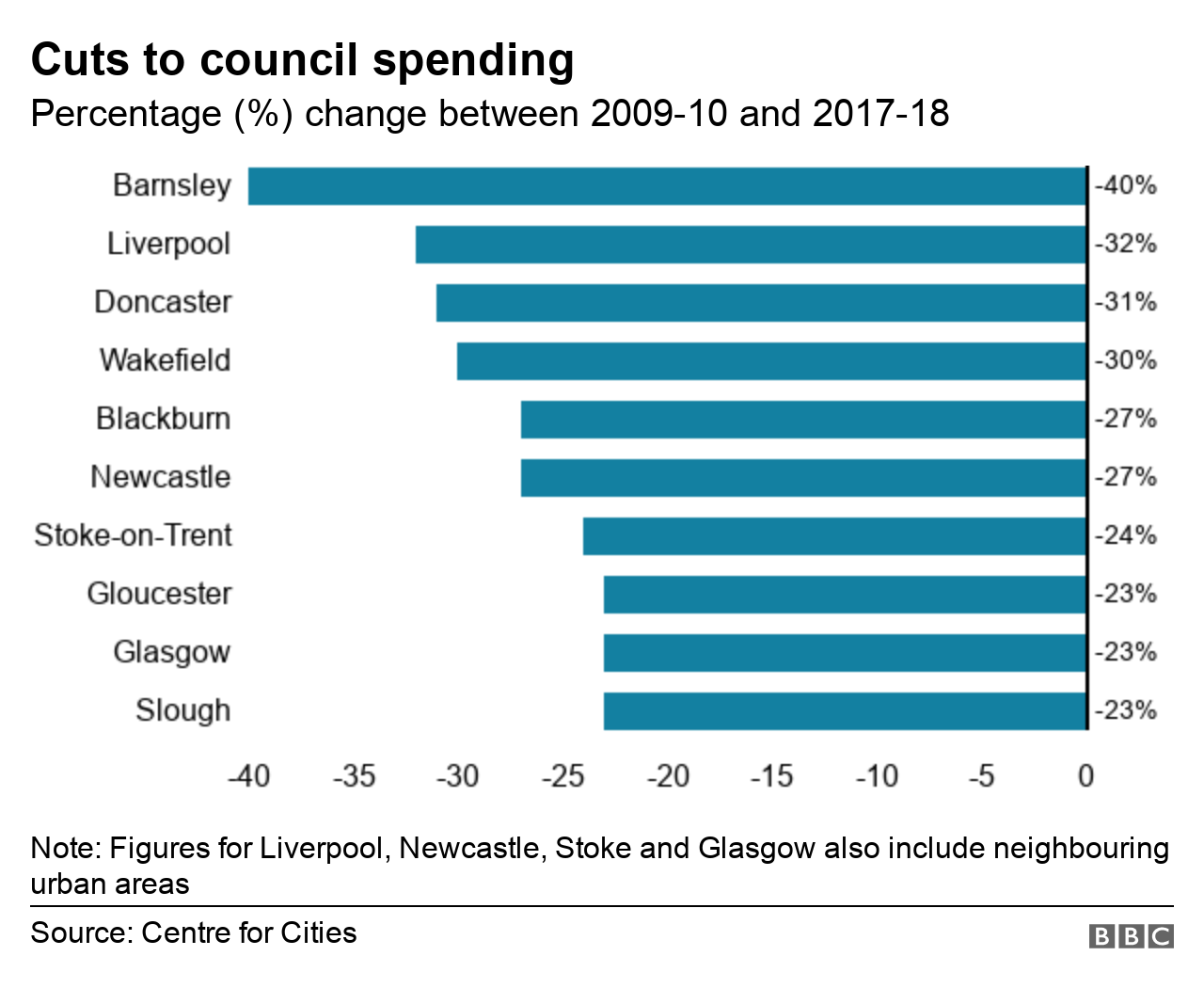
Centre for Cities said Liverpool saw the largest cuts per person, losing the equivalent of £816 for every resident, although it also included neighbouring Knowsley in its analysis.
The think-tank's analysis looked at "primary urban areas", which are largely built-up. It found Newcastle-upon-Tyne, North Tyneside, South Tyneside and Gateshead had seen spending fall nearly 27%.
Stoke-on-Trent, together with Newcastle-under-Lyme, had seen spending fall about 24%; while Glasgow's fall of 23% of spending included East Dunbartonshire, Renfrewshire and East Renfrewshire.
'Economically weaker'
Centre for Cities chief executive Andrew Carter said: "Councils have managed as best they can, but the continued singling-out of local government for cuts cannot continue. There is a very real risk that many of our largest councils will in the near future become little more than social care providers.
"The cities most affected are economically weaker and have been less able to absorb the loss of central government funding."
The County Councils Network said all local authorities, not just cities and urban areas, had been affected by funding cuts as well as rising demand for services such as adult social care.
Its director Simon Edwards said: "Counties have not benefitted from higher levels of business rate income, revenue from housing growth, and much higher per-person funding for public services."
Mr Brokenshire said councils would see a "real terms increase" in funding to "strengthen services and support local communities".
"On top of this, we are delivering on our vision for a strong Northern Powerhouse economy with wide-ranging support including a historic £13 billion investment to improve journeys for commuters and motorists and over £5 billion for devolution and growth Deals," he said.

Your questions answered
We invited readers to ask their questions about this story and here is what we found:
Is council spending in rural areas more or less per head than in cities?
The Centre for Cities report says urban areas have experienced cuts of about £386 per person, compared to £172 per person elsewhere.
It says estimating "need" is difficult, but research shows poorer households who are more reliant on public services tend to live near urban areas.
However, the County Councils Network, which represents areas in more rural parts of the country, says its members have also been "particularly affected" by the funding cuts, and face a £3.2bn "black hole" of their own by 2020.
Did population changes play a part in the funding cuts?
As well as looking at overall cuts to day-to-day spending, Centre for Cities also looked at the level of cuts per person.
Its figures for spending per head in 2009-10 and in 2017-18 took into account the population of each area in each year.
What happened in London?
London came 18th out of 62 areas studied for the percentage drop in spending. It has lost about £585 per person in council spending according to the research.
- Published4 October 2018
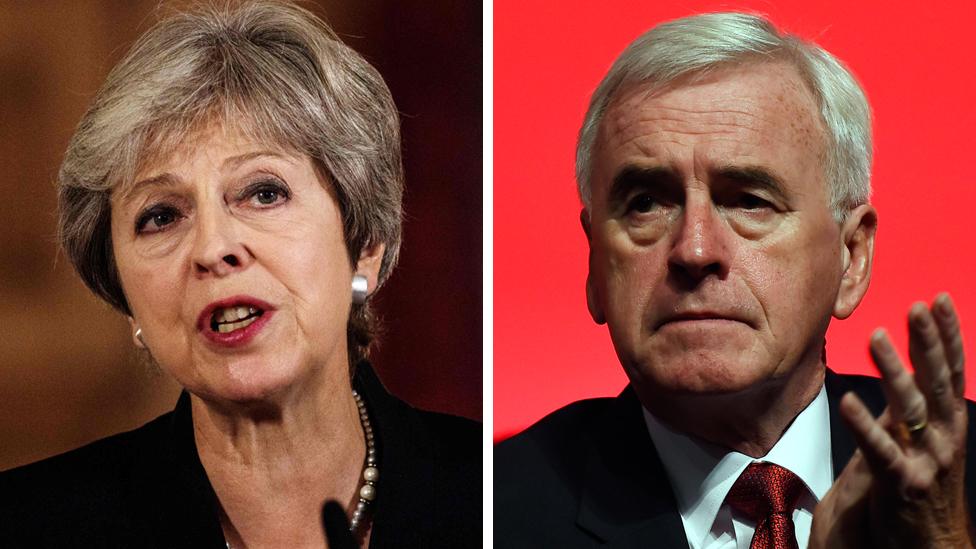
- Published29 October 2018
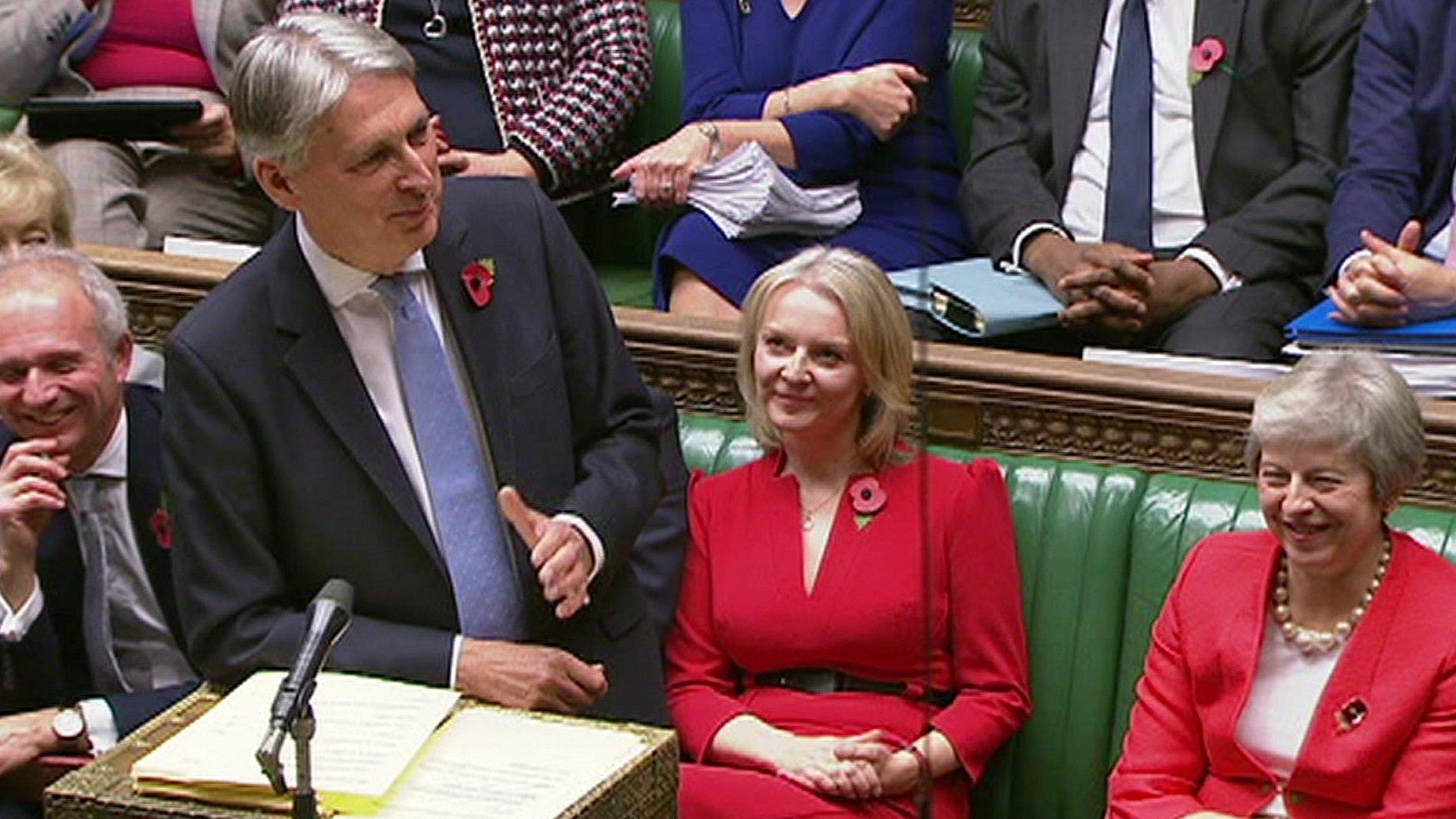
- Published23 November 2018
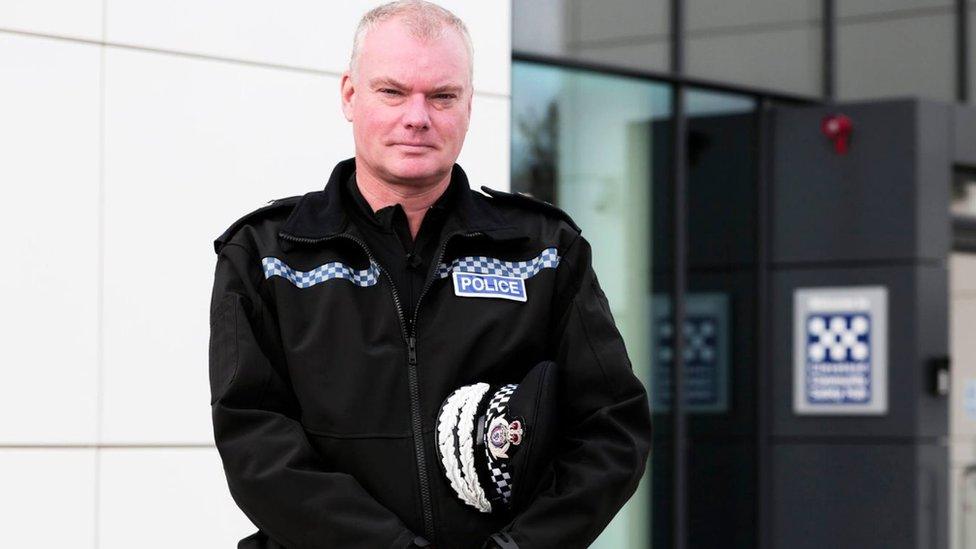
- Published5 December 2018
